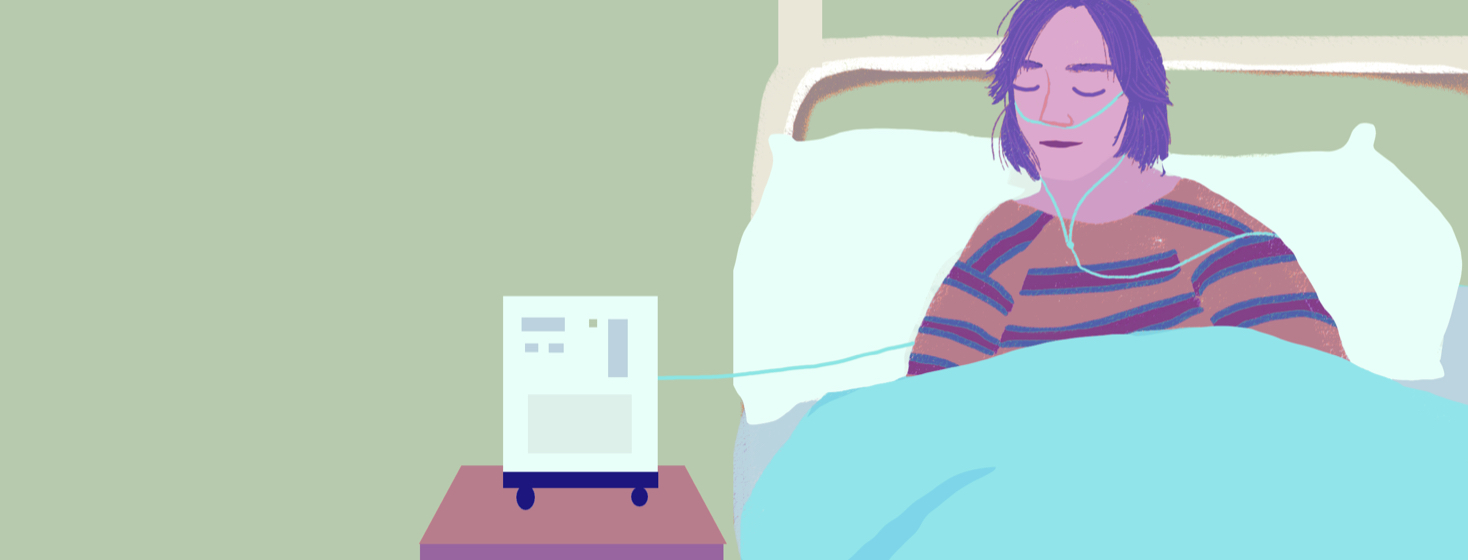Overnight Oxygen for Asthma and Long COVID
I got COVID last Mother’s Day. Great gift, huh?
I would have preferred breakfast in bed, flowers, and some chocolate.
But no...I had a fever, chills, body aches, congestion, and one nasty cough. My asthma was getting worse - despite being on a high-dose combination inhaler.
I also needed breathing treatments every 4 hours around the clock. I was coughing so hard that I could not eat. I was also sleeping propped up on my couch. At that point, I knew it was time for oral steroids and Paxlovid.
I spent a month trying to recuperate, took a lot of naps, and then it was time for me to start a new job. Rotten timing, I know.
I felt terrible – all day long and all night long. I would take a 2-hour nap after dinner each night and then go to bed a few hours later. I was exhausted and weak. All. The. Time.
Low oxygen levels
I was struggling to get my oxygen level back up. My oxygen level is usually around 95 or higher. But most days, I was around 91. I know it’s important to not just rely on an oxygen level, it’s important to look at symptoms too. I had low oxygen levels, shortness of breath, fatigue, etc. And I still needed frequent breathing treatments.
I should have asked my doctor for oxygen. My kids have been in the hospital over a dozen times, and I know that supplemental oxygen can help.
Like a typical mom, I just kept trying to push through it. If it was for one of my kids, I would have called the doctor to get oxygen for them. But for me? A mom? Meh...I’m fine.
Slowly, my oxygen level started to improve and I thought I was finally getting better.
Talking to my doctor
But the next time I was at the doctor, I complained that I still felt terrible. My oxygen level was fine during the day, but my doctor worried that my oxygen level was dropping at night. He ordered an overnight oxygen test.
It was pretty easy. I just put the oxygen monitor on my finger, tucked the cord into the small, zippered bag, and put it in bed with me.
The results showed that I was still dropping below 91% often during the night. No wonder I felt terrible all day, I wasn’t getting enough oxygen at night.
Overnight oxygen to help with my asthma and long COVID
Doc said I needed oxygen – but only at night. The home health care brought an oxygen concentrator and showed me how to use it. It had been years since we had one at home for my kids after they had been in the hospital, so I wanted a reminder of how to use it. The oxygen concentrator does just what its name says - it takes room air and “concentrates” it, turning it into oxygen.
You turn it on, wait for it to warm up and the light to turn green, and then put your cannula or mask on. Then turn off the machine when you wake up.
That’s it.
Sleeping with oxygen can be an adjustment. Some people like using a cannula, and others prefer an oxygen mask. It depends on how many liters your doctor orders. I also like to add a "bubbler" which is like a small container of water that works to humidify the air so it doesn't dry out your nose.
If you have long covid, and are still struggling, you may want to ask your doctor if you need oxygen (during the day or night.)
I wish I had asked my doctor sooner.

Join the conversation